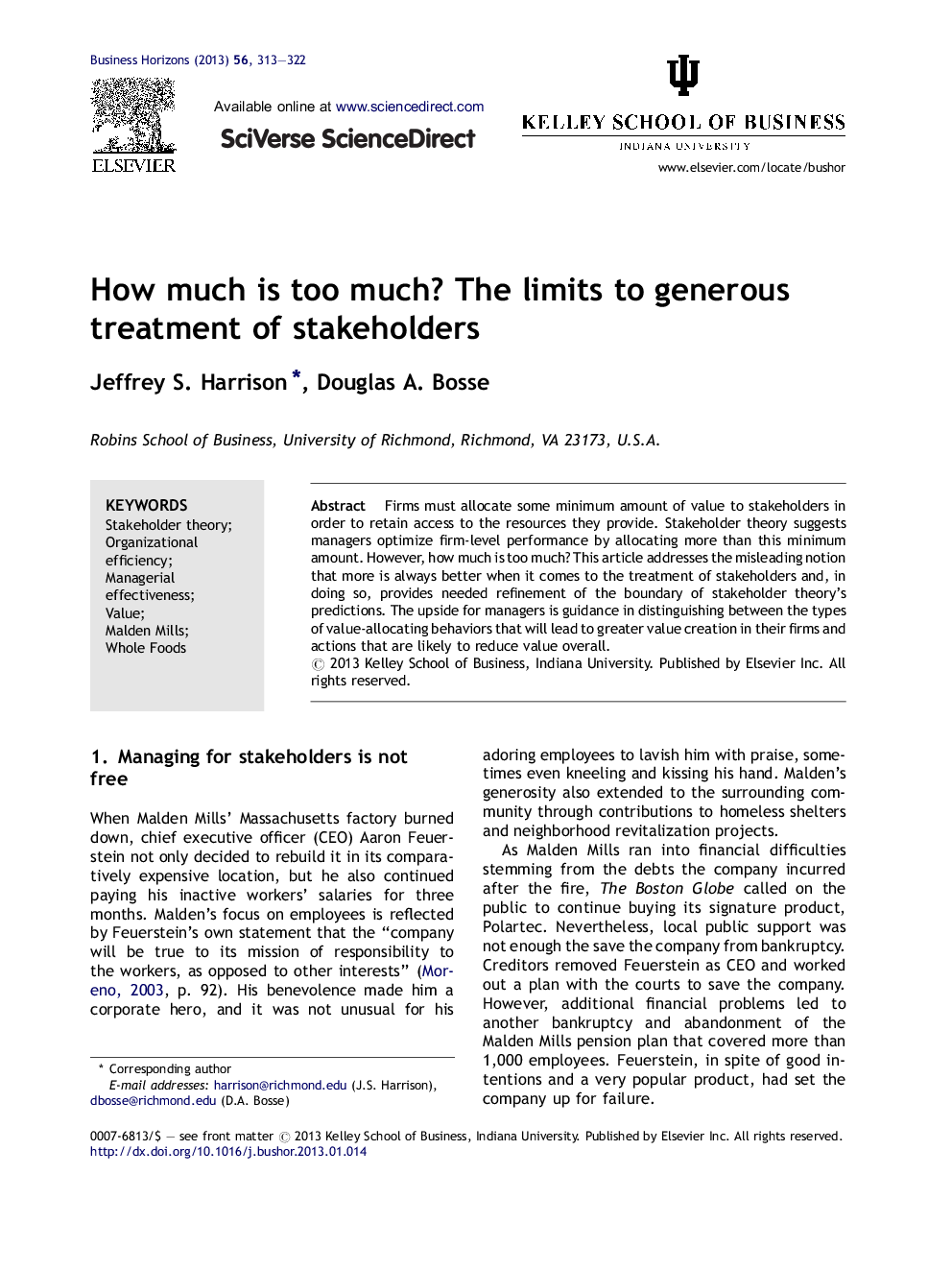| Article ID | Journal | Published Year | Pages | File Type |
|---|---|---|---|---|
| 1014241 | Business Horizons | 2013 | 10 Pages |
Abstract
Firms must allocate some minimum amount of value to stakeholders in order to retain access to the resources they provide. Stakeholder theory suggests managers optimize firm-level performance by allocating more than this minimum amount. However, how much is too much? This article addresses the misleading notion that more is always better when it comes to the treatment of stakeholders and, in doing so, provides needed refinement of the boundary of stakeholder theory's predictions. The upside for managers is guidance in distinguishing between the types of value-allocating behaviors that will lead to greater value creation in their firms and actions that are likely to reduce value overall.
Related Topics
Social Sciences and Humanities
Business, Management and Accounting
Business and International Management
Authors
Jeffrey S. Harrison, Douglas A. Bosse,
